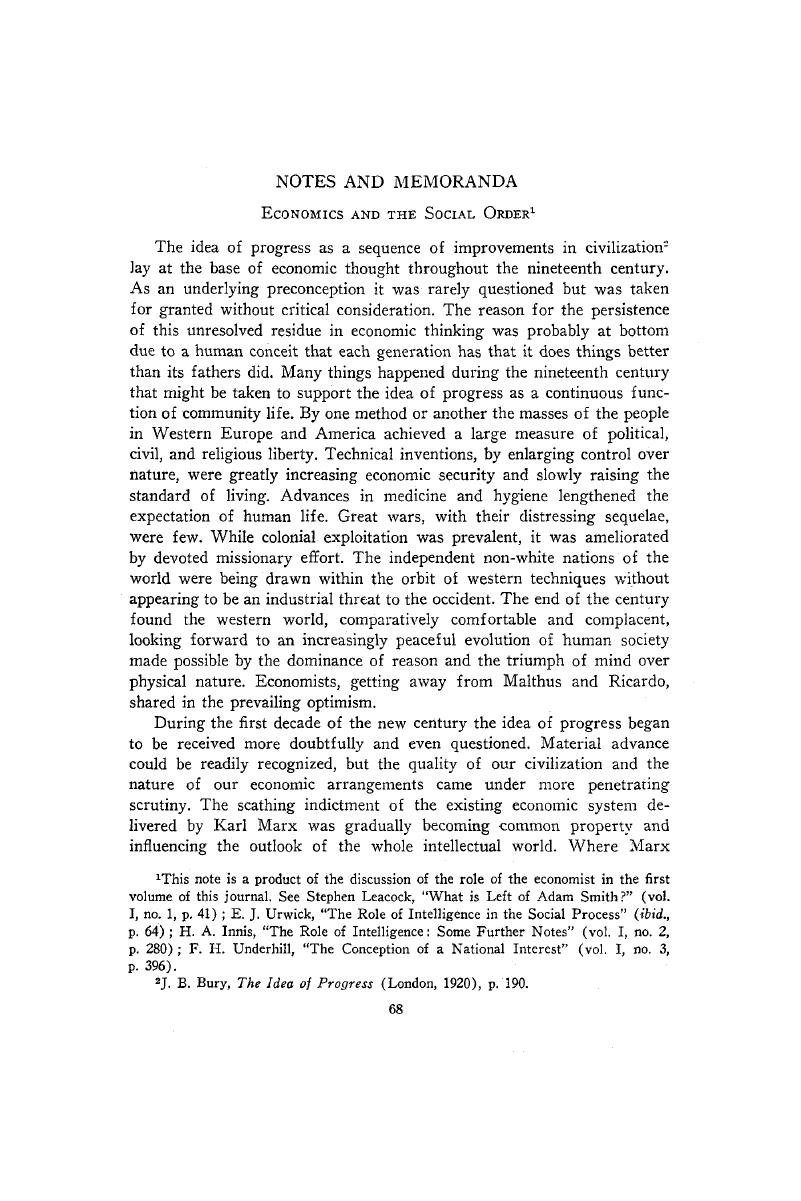No CrossRef data available.
Article contents
Economics and the Social Order1
Published online by Cambridge University Press: 07 November 2014
Abstract

- Type
- Notes and Memoranda
- Information
- Canadian Journal of Economics and Political Science/Revue canadienne de economiques et science politique , Volume 2 , Issue 1 , February 1936 , pp. 68 - 73
- Copyright
- Copyright © Canadian Political Science Association 1936
Footnotes
This note is a product of the discussion of the role of the economist in the first volume of this journal. See LeacockStephen, “What is Left of Adam Smith?” (vol. I, no. 1, p. 41); E. J. Urwick, “The Role of Intelligence in the Social Process” (ibid., p. 64); InnisH. A., “The Role of Intelligence: Some Further Notes” (vol. I, no. 2, p. 280); UnderhillF. H., “The Conception of a National Interest” (vol. I, no. 3, p. 396).
References
2 Bury, J. B., The Idea of Progress (London, 1920), p. 190.Google Scholar
3 Sorel, Georges, Les Illusions du Progress (Paris, 1908, 2nd ed. 1910), p. 275.Google Scholar
4 Papers and Proceedings of the Twenty-Eighth Annual Meeting of the American Economic Association, 12, 1915, p. 85.Google Scholar
5 Hollander, J. H., “The Economist's Spiral” (American Economic Review, 03, 1922, p. 1).Google Scholar
6 Carver, T. N., The Principles of National Economy (New York, 1921), p. 575.Google Scholar
7 Robbins, L., The Nature and Significance of Economic Science (London, 1932), p. 15.Google Scholar
8 “The Conception of a National Interest”, p. 404.




